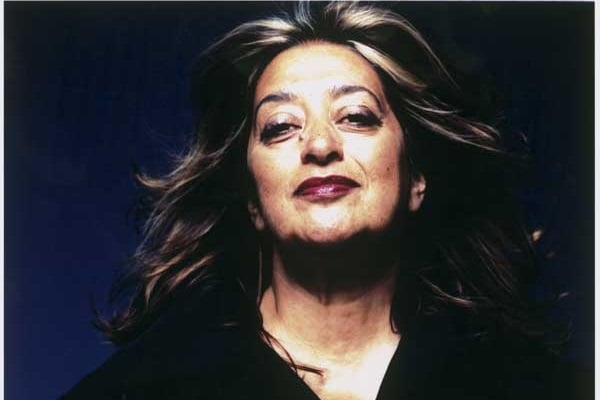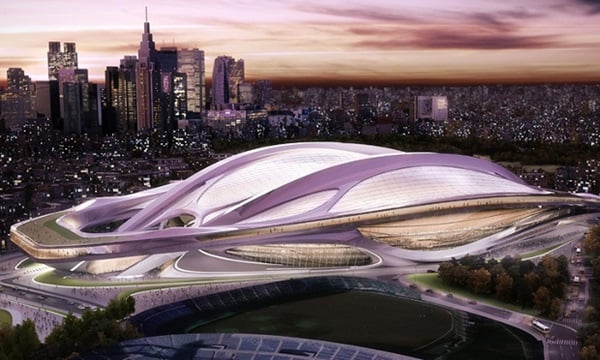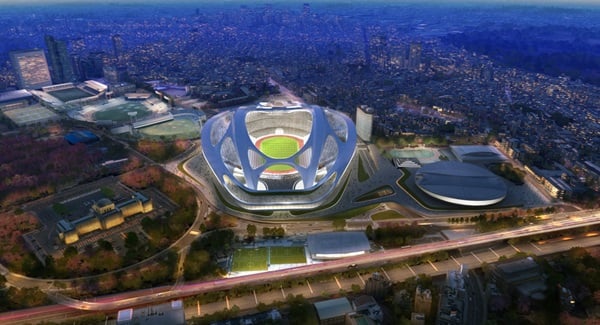People
Zaha Hadid Walks Out of BBC Interview Over Accusations of Worker Deaths
Hadid continues to deny the allegations.

Photo: www.e-architect.co.uk.
Hadid continues to deny the allegations.

Sarah Cascone

Architect Zaha Hadid walked out of a BBC interview on Thursday morning when asked about the safety of migrant workers building her Qatar stadium and her recently scuttled Tokyo Olympic Stadium design. She was there to discuss her latest honor, the 2016 Royal Gold Medal from the Royal Institute of British Architects (RIBA).
The architect has been sensitive to accusations that her 2022 World Cup stadium in Qatar is perpetuating exploitative labor practices in the region. In 2014, she successfully sued the New York Review of Books after Martin Filler claimed that 1,200 workers had died on the project, when in fact construction had not yet begun.
The BBC’s Sarah Montague repeated those figures, to Hadid’s consternation. “Absolutely not true,” the archictect retorted. “We sued somebody for writing that, and saying that, and it had to be withdrawn from the press. It is absolutely inaccurate.” (An annotated transcript is available at the Guardian.)
Other projects in the region, such as the Abu Dhabi outposts of the Guggenheim and the Louvre, have been subject to similar scrutiny, including protests at the 2015 Venice Biennale.

A rendering of the abandoned Zaha Hadid design for the 2020 Tokyo Olympic Stadium.
Photo: Zaha Hadid.
The Guardian‘s Oliver Wainwright questioned Hadid’s treatment compared to that of male starchitects. “Norman Foster has designed a gigantic pleasure dome and a ‘Palace of Peace and Reconciliation’ in Kazakhstan, a regime that rules with an iron fist,” and “Rem Koolhaas is engaged in projects across the Middle East, including a vast library and foundation headquarters currently nearing completion in Qatar,” he writes, noting that both have not faced the same criticisms as Hadid for their work for such “dubious regimes.”
Montague also focused on Hadid’s gender—she is RIBA’s first female gold medalist—asking if sexism is “something that even at the giddy heights you are now at, you are aware of?” The interviewer also noted that the gold medal citation described Hadid as “a scary character in the style of John McEnroe” and asked the architect if she thinks that “perhaps you come across as quite a scary, formidable individual and also that you haven’t been accepted?”
“I don’t think it matters really,” Hadid responded, noting that “I wasn’t part of the so-called establishment and I think it’s precisely because you know I can’t go to men’s clubs or go golfing or whatever they all do together.”

A rendering of the abandoned Zaha Hadid design for the 2020 Tokyo Olympic Stadium. Photo: Zaha Hadid.
The BBC interview imploded when Montague brought up the recently scrapped Olympic stadium project, but interrupted Hadid’s explanation to tell her they were running out of time.
“Don’t ask me a question when you can’t let me finish it. Then I won’t say anything,” said Hadid.
The Olympic Stadium was widely criticized for its projected $2 billion price tag, with Japan deciding to pursue a less expensive plan. Hadid did look to revamp her design to be less costly, before ultimately withdrawing her proposal from consideration last week.
“We really welcome you to make the point,” Montague insisted, asking Hadid to clarify whether or not the stadium had been cancelled over the alleged $2 billion cost.
“No. Listen to me. Let’s stop this conversation right now,” Hadid instructed, ending the interview. “I don’t want to carry on. Thank you very much.”
Related Stories:
Spectacular Zaha Hadid-Designed Mountain Museum Opens in the Dolomites